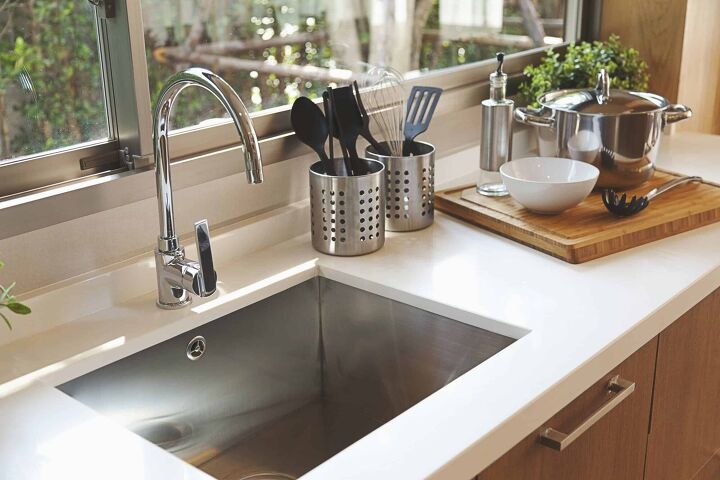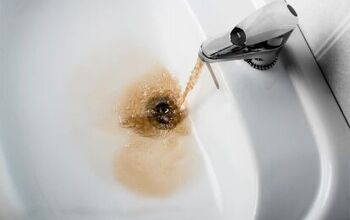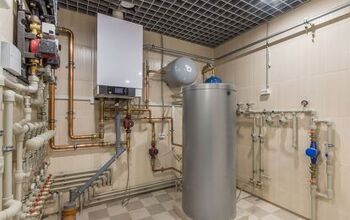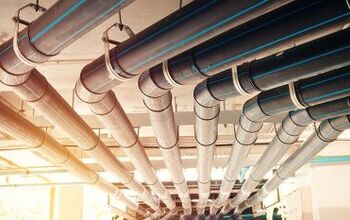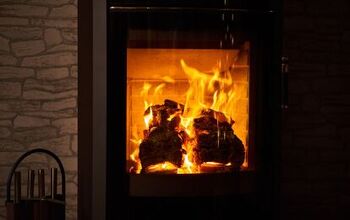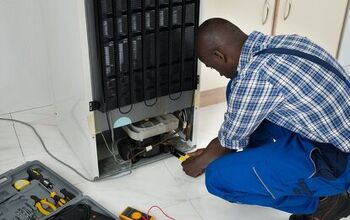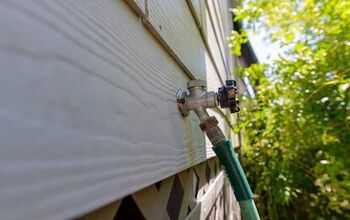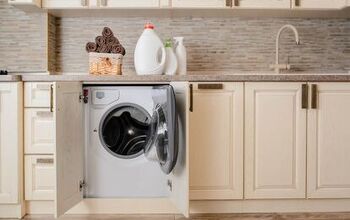No Water Coming Out Of Faucets? (Possible Causes & Fixes)

Water is essential to keeping your household functioning. If none is coming out of your faucets, then your entire day could be disrupted. You wouldn’t be able to brush your teeth, wash the dishes, or even wash your hands.
For all of these reasons, it’s important to solve this issue as quickly as possible. To do so, you’ll need to check a few different things to see what could be causing the problem.
If no water is coming out of your faucets, you should first try to isolate the problem by checking other taps. If none of them are working, try checking with your water supplier and neighbors. If the problem is only yours, then you may need to check your water main or check for leaks. You may also have a plumbing blockage.
Do You Need to Hire a Plumber?
Get free, zero-commitment quotes from plumbers near you.

Why Is There No Water Coming Out of My Faucets?
There could be several explanations for your problem. Your first step for fixing the issue is to try and figure out which of these explanations applies to your situation.
First, check to see whether water is coming out of any of your other taps. If other faucets in your home are working fine, then you’ll know right away that the problem is limited to a single tap. This could be happening because of a plumbing blockage or a faulty faucet.
If none of your taps are working, then it could be because of an issue with your water supplier. Your next step is to contact them or to get in touch with your neighbors to see if they’re experiencing a similar issue. If they are, then the problem needs to be resolved by your supplier.
Faucets can also stop working because of plumbing leaks, rusts on your pipes, or even because your pipes have frozen. You may need to call a plumber out to take a look at the issue if you think that your faucets have stopped working for one of these reasons.
How to Fix No Water Coming Out of Faucet
You’ll only be able to fix your faucet issues if you know what’s causing them. Read through the previous section to learn more about what might be causing your issue.
Once you’ve identified the problem, you’re ready to start working towards a solution. Continue reading to learn how to fix each of the issues that could be causing your faucets to stop working.
How to Fix a Clogged Faucet
If you’ve identified that your issues are limited to one faucet, then it’s likely that the faucet in question has gotten clogged somehow. This is a fairly easy issue to fix and one that shouldn’t require the assistance of a professional plumber.
Start this process by checking on your aerator. This is the little screen that’s at the end of the spout where the water comes out. It’s possible that this has been clogged by sediment or debris.
Fixing this issue is easy. To do so, simply unscrew the end of the spout where the screen is located. Once you have, clean the screen out and screw it back into place when you’re done. This could resolve the issue entirely.
If that doesn’t work, then chances are the blockage is located within your pipes. Fixing this is a bit more complex and best done by a plumbing professional.
Check Your Water Main
Your faucet could have also stopped working because of an issue with your water main. Your water main needs to be open in order for water to flow through your pipes.
Your water main could be located inside your home, outside of it, or underground in a pit near your property line. If you don’t know where yours is, consult with your home’s blueprints or give your water supplier a call. Chances are they’ll be able to either tell you where the main is located or send a technician out to help.
Opening your water main is a fairly straightforward process. Simply turn the valve into the open position and give it a second to send water back into your pipes. After a few minutes, try your faucet again to see if this has fixed the problem.
Check for Leaks
Leaks are another common cause for faucets that don’t work. You might have one if you’ve already tried the fixes covered above and haven’t had success.
Finding a leak can be somewhat challenging. One way to do so is with the help of your water meter. You can turn off all of the water in your home. Then, watch the water meter.
If your meter continues moving, then it’s probable that you have a fast-moving leak. If the meter doesn’t move at all, keep your home’s water shut off for a few more hours. Then, check the meter once more to see if any change has occurred.
You can also find leaks by keeping an eye out for where that water might be going. For example, you may notice wet spots in the back of your cabinets or under basins. You might also notice mold or foul smells, which can also indicate a leak.
If you find a leak, then you probably want to hire a professional to come over and take a look at it. They can identify the source of the leak and make sure that it’s completely fixed before you turn your water back on.
No Hot Water Coming Out of Faucets?
It’s also possible that your cold water is working fine but your hot water won’t kick in. There could be several reasons for this, some of which are easier to fix than others.
The first step is to check your gas, electricity, and water supplies. It’s possible that one of these was inadvertently shut off and that’s what’s causing your faucets to stop producing hot water.
It’s also possible that there’s an airlock in one of your pipes. You might be able to fix this yourself by attaching a hosepipe to a working tap and then connect it after to your malfunctioning hot tap. This can work to force the airlock out of your faucet.
Alternatively, you may need to reset your boiler entirely. Many boilers have a customer-operated reset switch now. You may need to remove the casing of the boiler to access this. Try switching it off and on again to see if that does the trick.
No Cold Water Coming Out of Faucets?
The problems and solutions for a lack of cold water are similar to what they are for a lack of hot water. The first potential solution is to check your cold water shut-off valve to make sure it’s not been accidentally turned off.
If that doesn’t work, consider whether frozen pipes could be the culprit. You might not expect this to be true, but a frozen pipe can actually lead to your faucet only producing hot water. It’s possible that winter weather has frozen your cold water pipe, which would make your hot water pipes the only ones that function properly.
If neither of these turns out to be the source of your problem, then it’s likely that you have an issue with a pressure-balancing valve or a pipe blockage. These are problems that can be difficult to fix on your own, so be sure to call a professional plumber to come and take a look at them.
Do You Need to Hire a Plumber?
Get free, zero-commitment quotes from plumbers near you.

Related Questions
How much does it cost to fix a leaking pipe?
Your costs for fixing a leaking pipe will vary based on the severity of the leak, where it’s located, and where you live. That being said, homeowners generally have to pay between $150 and $350 to have a leaking pipe repaired. If you also need diagnostic assistance, then your charges could go up another $100 or so.
How much do new faucets cost?
If you’ve figured out that your faucet itself is malfunctioning, then it might be easier to replace the fixture altogether instead of trying to repair it. The costs of doing so are generally between $150 to $200 for a standard pull-down faucet.That being said, you may be able to purchase a bar faucet for as little as $50. Either way, expect to add about $100 to your total costs if you plan to hire a plumber to do the replacement for you.

Kellan is a content writer who specializes in everything DIY. When he's not behind the keyboard, he enjoys spending time with his pets, playing music, and geeking out about basketball. He hopes to make your home improvement projects a little bit easier to accomplish.
More by Kellan Jansen



